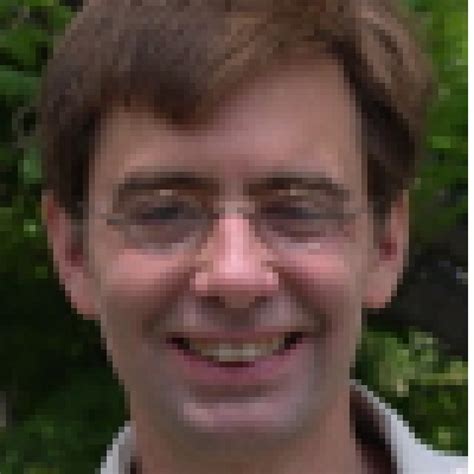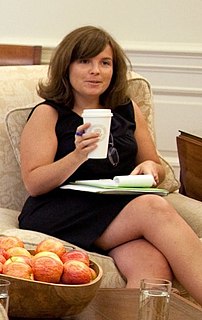A Quote by Oliver Luck
Have you ever heard of the book 'Freakonomics?' So there's these two economics professors, and they're really interesting guys, and they wrote these books. And it's really all about sort of false thinking. They try to go in and look at a number of different phenomenon.
Related Quotes
Margaret Cavendish was one of the people who came up in the course. That was when I started thinking about her as a character for a book, but my idea was for a totally different book. It had all these characters in it; Samuel Pepys was one of the main characters. He famously wrote these extensive diaries through the period that are really funny and sort of saucy, actually.
I think the books are the books. They were conceived as books. They weren't conceived as movies. When I write scripts, that's an idea and a situation that I think is a really good idea for a movie. When I'm writing a book, I'm not thinking, "Oh, this would be a great movie." This would be a very interesting book. And I think the books are things that cannot really be adapted into another medium.
One wouldn't want to say that what makes a good writer is the number of books that the writer wrote because you could write a whole number of bad books. Books that don't work, mediocre books, or there's a whole bunch of people in the pulp tradition who have done that. They just wrote... and actually they didn't write a whole bunch of books, they just wrote one book many times.
I think that if you look at all of the books that have ever been written about people working in the White House, they're sort of the opposite of my book. And I think that so many people want to write a book that sort of memorializes their place in history. And I wanted to write something for all of the women who are like me. I grew up in upstate New York, I graduated high school with 70 other people and didn't ever know that anything like this would have really been an option for me. So I wanted other young women — and men — to know that just being you is plenty.
The truth is that filmmaking is not really an actor's medium; it's really a director's medium, so all I can really control is the character that I'm playing. So I try to look for characters that are interesting and engaging and different than what I've done before and hopefully it becomes a good movie.
To me, what I realized when we were doing 'Spinal Tap' - and the four of us wrote that - is, really, the core of that is the relationship with the two guys who grew up together and that strain when the girlfriend comes in. If that wasn't there, it's a very different movie. Then it's just bumbling guys stumbling along.
I am a reader, a flashlight-under-the-covers, carries-a-book-everywhere-I-go?, don't-look-at-my-Amazon-bill. I choose purses based on whether I can cram a paperback into them, and my books are the first items I pack into a suitcase. I am the person who family and friends call when they need a book recommendation or cannot remember who wrote Heidi. My identity as a person is so entwined with my love of reading and books that I cannot separate the two.
A religious phenomenon will only be recognized as such if it is grasped at its own level, that is to say, if it is studied as something religious. To try to grasp the essence of such phenomenon by means of physiology, psychology, sociology, economics, linguistics, art or any other study is false; it misses the one unique and irreducible element in it - the element of the sacred.
The Donald Trump phenomenon in the U.S. is mirrored completely by the Brexit phenomenon in the U.K. It's very similar forces. And what is interesting to me is there are two different groups that come together, who don't really agree with each other, but have come together in unity against, if you like, what is perceived as the status quo, or - and certainly what is a more center-right or center-left type of politics.
Hegel seems to me to be always wanting to say that things which look different are really the same. Whereas my interest is in showing that things which look the same are really different. I was thinking of using as a motto for my book a quotation from King Lear: 'I’ll teach you differences'. ... 'You’d be surprised' wouldn’t be a bad motto either.

































